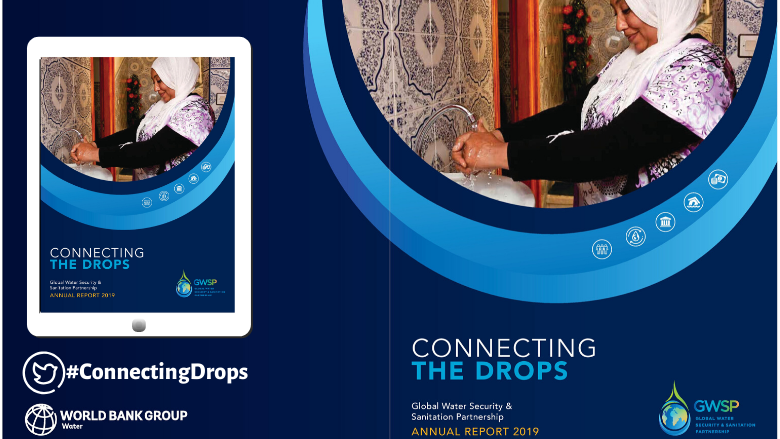Access to water and sanitation is essential to the health and well-being of individuals, the environment, and economies. But at a time when access to such essential services remains out of reach for so many because of multiple pressures, it is crucial that policy-makers and practitioners at the local, national, regional and global level have high-quality knowledge and analysis to devise appropriate solutions to this massive challenge.
The Global Water Security & Sanitation Partnership (GWSP) brings a unique global value proposition to this conundrum. It is a major contributor to a growing body of evidence demonstrating how the current and pending water crises are affecting economies, health, jobs and the environment. Just as importantly, GWSP supports technical assistance addressing how these very significant challenges can be addressed. This body of work, in turn, has a direct impact on the policy advice provided to clients, as well as on the design and implementation of World Bank lending operations.
The Partnership has worked with nearly 400 local and international partners to produce cutting-edge analysis, which is shared and used by both national and subnational clients, other development partners, nongovernmental organizations, academia, and the private sector. This analysis informs government policies in client countries, fosters partnerships, and builds capacity where it is needed most.
GWSP’s second Annual Report – Connecting the Drops – is full of examples that illustrate how this is happening across the globe, and these connections play a key role in maximizing GWSP’s impact, as GWSP Program Manager Joel Kolker explains:
“GWSP is perhaps the only water-related think tank that goes beyond knowledge and directly supports implementation at scale. Once challenges are identified and a thorough analysis is undertaken, the findings are shared with clients, Bank staff, and the broader development community.
“As appropriate, GWSP then provides the necessary resources through just-in-time technical assistance and long-term country engagements, working with partners in some of the most challenging environments in the world. GWSP is moving the knowledge generated on critical water-related issues directly into concrete, well-financed programs addressing these issues.”
